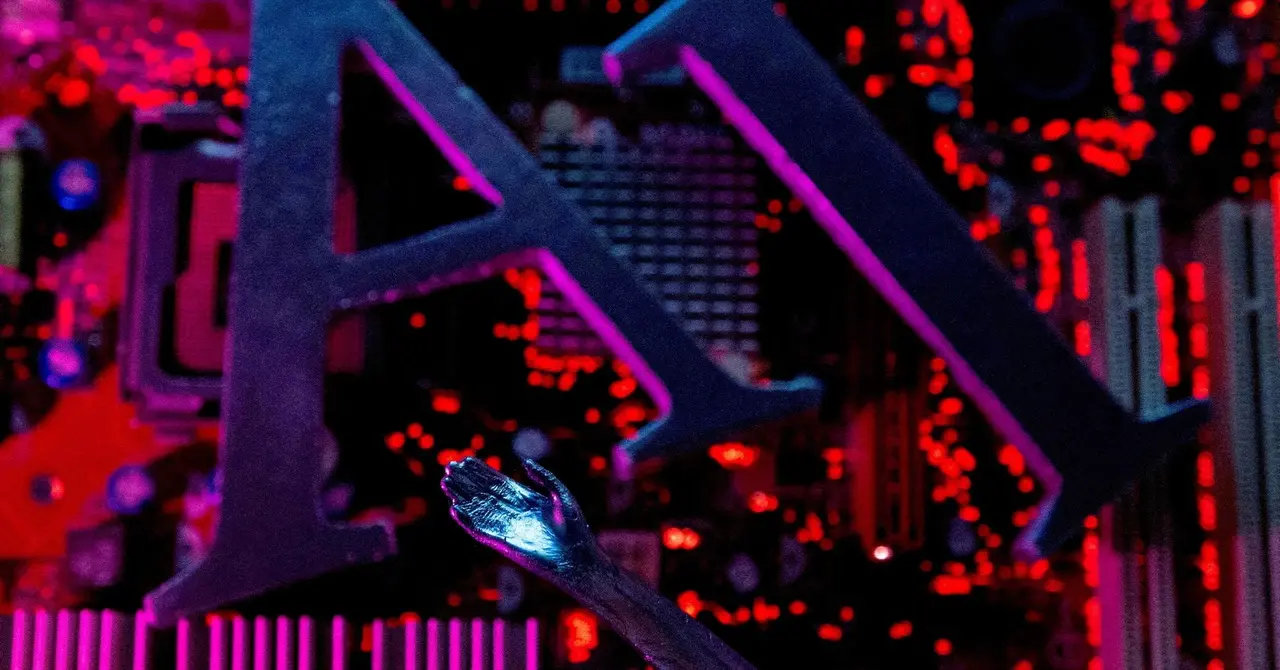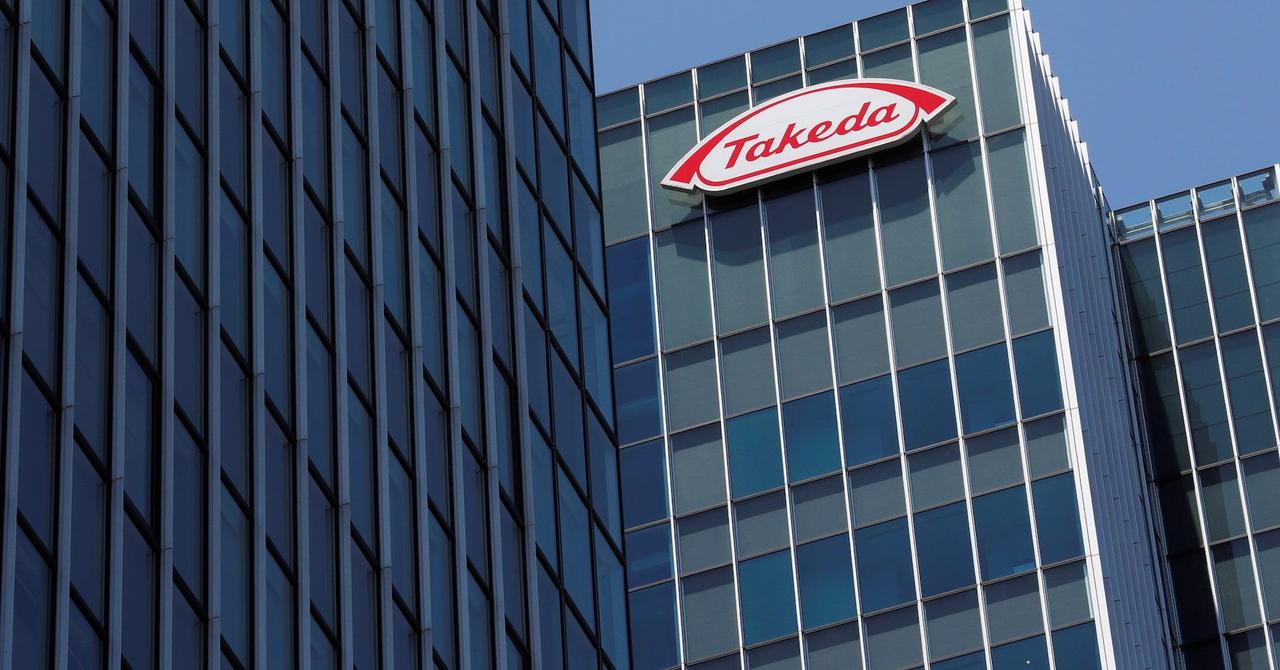Nvidia-Backed Iambic Therapeutics Unveils AI Breakthrough in Drug Discovery
2 Sources
2 Sources
[1]
Nvidia-Backed AI Firm Iambic Unveils Drug Discovery 'Breakthrough'
LONDON (Reuters) - Biotech firm Iambic Therapeutics unveiled on Tuesday what it says is a breakthrough artificial intelligence model that could drastically reduce the time and money needed to develop new drugs. A growing number of tech startups are using AI to advance pharmaceutical research. Iambic, which has previously won investment from tech giant Nvidia, published details of its new AI drug discovery model, named "Enchant". Enchant was trained on large troves of pre-clinical data, derived from laboratory tests conducted on drugs before they were ever tested on humans. The model has been designed to predict how a given drug will perform at the earliest stage of development. In a white paper published by Iambic, Enchant showed a high degree of accuracy when predicting how well the human body would absorb certain drugs, with results cross-referenced to real-world outcomes. The company said its model set a new benchmark, with a 0.74 accuracy prediction score. By comparison, earlier models had only achieved as high as 0.58. Iambic co-founder and chief technology officer Fred Manby told Reuters that researchers using Enchant could potentially halve the investment needed to develop some pharmaceuticals, as they could see how successful a drug is likely to be at the earliest stage. "The cost of getting a product to market is often quoted at around $2 billion, and a lot of that isn't about the programme costs, but the failure rates. The costs of getting a product all the way to a marketed medicine derive from a high chance of late-stage failure," he said. "If you make a 10% improvement in each stage of clinical development, you would basically halve the cost, because it applies cumulatively." Frances Arnold, who won the chemistry Nobel Prize in 2018 and sits on Iambic's board, told Reuters the development represented a major advance in the use of AI for drug discovery. Citing Google DeepMind's AlphaFold program, which recently won its developers the chemistry Nobel Prize, Arnold said Enchant addressed a different challenge in the drug discovery pipeline. "AlphaFold predicts the 3D structure of how a molecule binds to a protein target, but structure is not enough," she said. "The success of a drug candidate is determined by its pharmacokinetic, efficacy, and toxicity properties. Enchant addresses these distinct and important challenges." (Reporting by Martin Coulter; Editing by Susan Fenton)
[2]
Nvidia-backed AI firm Iambic unveils drug discovery 'breakthrough'
LONDON, Oct 29 (Reuters) - Biotech firm Iambic Therapeutics unveiled on Tuesday what it says is a breakthrough artificial intelligence model that could drastically reduce the time and money needed to develop new drugs. A growing number of tech startups are using AI to advance pharmaceutical research. Iambic, which has previously won investment from tech giant Nvidia (NVDA.O), opens new tab, published details of its new AI drug discovery model, named "Enchant". Enchant was trained on large troves of pre-clinical data, derived from laboratory tests conducted on drugs before they were ever tested on humans. The model has been designed to predict how a given drug will perform at the earliest stage of development. In a white paper published by Iambic, Enchant showed a high degree of accuracy when predicting how well the human body would absorb certain drugs, with results cross-referenced to real-world outcomes. The company said its model set a new benchmark, with a 0.74 accuracy prediction score. By comparison, earlier models had only achieved as high as 0.58. Iambic co-founder and chief technology officer Fred Manby told Reuters that researchers using Enchant could potentially halve the investment needed to develop some pharmaceuticals, as they could see how successful a drug is likely to be at the earliest stage. "The cost of getting a product to market is often quoted at around $2 billion, and a lot of that isn't about the programme costs, but the failure rates. The costs of getting a product all the way to a marketed medicine derive from a high chance of late-stage failure," he said. "If you make a 10% improvement in each stage of clinical development, you would basically halve the cost, because it applies cumulatively." Frances Arnold, who won the chemistry Nobel Prize in 2018 and sits on Iambic's board, told Reuters the development represented a major advance in the use of AI for drug discovery. Citing Google DeepMind's (GOOGL.O), opens new tab AlphaFold program, which recently won its developers the chemistry Nobel Prize, Arnold said Enchant addressed a different challenge in the drug discovery pipeline. "AlphaFold predicts the 3D structure of how a molecule binds to a protein target, but structure is not enough," she said. "The success of a drug candidate is determined by its pharmacokinetic, efficacy, and toxicity properties. Enchant addresses these distinct and important challenges." Reporting by Martin Coulter; Editing by Susan Fenton Our Standards: The Thomson Reuters Trust Principles., opens new tab
Share
Share
Copy Link
Iambic Therapeutics, a biotech firm backed by Nvidia, has introduced an AI model called Enchant that could significantly reduce time and costs in drug development. The model shows high accuracy in predicting drug performance at early stages.

Iambic Therapeutics Unveils Enchant: A Game-Changer in AI-Driven Drug Discovery
Iambic Therapeutics, a biotech firm backed by tech giant Nvidia, has announced a potentially groundbreaking development in the field of artificial intelligence-driven drug discovery. The company has unveiled a new AI model named "Enchant," which promises to significantly reduce both the time and financial investment required for developing new pharmaceuticals
1
2
.The Enchant Model: Precision in Early-Stage Drug Development
Enchant represents a significant leap forward in AI-assisted drug discovery. The model was trained on extensive pre-clinical data, derived from laboratory tests conducted on drugs prior to human trials. Its primary function is to predict drug performance at the earliest stages of development with unprecedented accuracy
1
2
.In a white paper released by Iambic, Enchant demonstrated remarkable precision in predicting how well the human body would absorb certain drugs. The model achieved an accuracy prediction score of 0.74, setting a new benchmark in the field. This score significantly outperforms previous models, which had only reached as high as 0.58
1
2
.Potential Impact on Pharmaceutical Development
Fred Manby, co-founder and chief technology officer of Iambic, highlighted the potential economic impact of Enchant. He suggested that researchers using the model could potentially halve the investment needed for pharmaceutical development
1
2
.Manby explained, "The cost of getting a product to market is often quoted at around $2 billion, and a lot of that isn't about the programme costs, but the failure rates. The costs of getting a product all the way to a marketed medicine derive from a high chance of late-stage failure"
1
2
.He further added, "If you make a 10% improvement in each stage of clinical development, you would basically halve the cost, because it applies cumulatively"
1
2
.Related Stories
Expert Endorsement and Comparison with Other AI Breakthroughs
Frances Arnold, a 2018 Nobel Prize winner in Chemistry and board member of Iambic, endorsed Enchant as a major advancement in AI application for drug discovery. She drew a comparison with Google DeepMind's AlphaFold program, which recently earned its developers the Nobel Prize in Chemistry
1
2
.Arnold emphasized that while AlphaFold predicts the 3D structure of molecule-protein interactions, Enchant addresses different crucial aspects of drug discovery. "The success of a drug candidate is determined by its pharmacokinetic, efficacy, and toxicity properties. Enchant addresses these distinct and important challenges," Arnold stated
1
2
.The Growing Trend of AI in Pharmaceutical Research
Iambic's breakthrough comes amid a growing trend of tech startups leveraging AI to advance pharmaceutical research. The development of Enchant represents a significant step forward in this rapidly evolving field, potentially accelerating the drug discovery process and making it more cost-effective
1
2
.As AI continues to make inroads into various scientific domains, the pharmaceutical industry stands to benefit greatly from these technological advancements. The success of models like Enchant could pave the way for more efficient drug development processes, ultimately leading to faster and more affordable treatments for a wide range of medical conditions.
References
Summarized by
Navi
Related Stories
SandboxAQ Releases Massive AI-Generated Dataset to Accelerate Drug Discovery
18 Jun 2025•Health

Drugmakers deploy AI to accelerate clinical trials and slash regulatory submission timelines
26 Jan 2026•Health

Takeda inks $1.7 billion Iambic deal to accelerate AI drug discovery for cancer treatments
09 Feb 2026•Technology

Recent Highlights
1
ByteDance Faces Hollywood Backlash After Seedance 2.0 Creates Unauthorized Celebrity Deepfakes
Technology

2
Microsoft AI chief predicts artificial intelligence will automate most white-collar jobs in 18 months
Business and Economy

3
Google reports state-sponsored hackers exploit Gemini AI across all stages of cyberattacks
Technology





